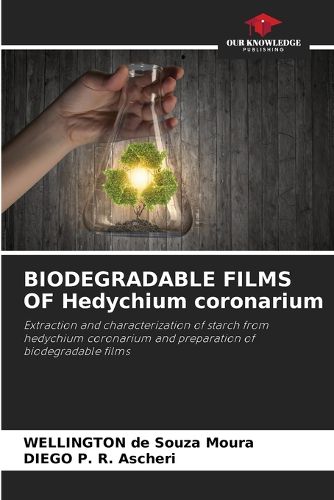Readings Newsletter
Become a Readings Member to make your shopping experience even easier.
Sign in or sign up for free!
You’re not far away from qualifying for FREE standard shipping within Australia
You’ve qualified for FREE standard shipping within Australia
The cart is loading…






Since flexible packaging made from synthetic plastic has become an environmental problem because it is not biodegradable, the use of natural polymers in the production of biodegradable materials has been an alternative. Biodegradable films can be produced mainly from polysaccharides, in particular starch. The aims of this work were to extract the starch present in the rhizomes of the Hedychium coronarium plant, characterize it and use it to make biodegradable films. The physical and chemical properties of the starch and the films produced were evaluated. The films showed degradation in around 45 days. The application of starch films as a vehicle for vitamin C showed that the loss of mass and active ingredient will depend on the composition of the biodegradable films.
$9.00 standard shipping within Australia
FREE standard shipping within Australia for orders over $100.00
Express & International shipping calculated at checkout
Since flexible packaging made from synthetic plastic has become an environmental problem because it is not biodegradable, the use of natural polymers in the production of biodegradable materials has been an alternative. Biodegradable films can be produced mainly from polysaccharides, in particular starch. The aims of this work were to extract the starch present in the rhizomes of the Hedychium coronarium plant, characterize it and use it to make biodegradable films. The physical and chemical properties of the starch and the films produced were evaluated. The films showed degradation in around 45 days. The application of starch films as a vehicle for vitamin C showed that the loss of mass and active ingredient will depend on the composition of the biodegradable films.